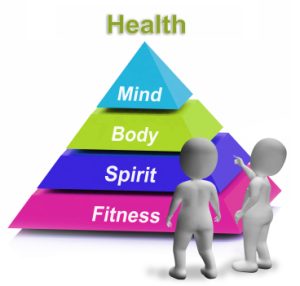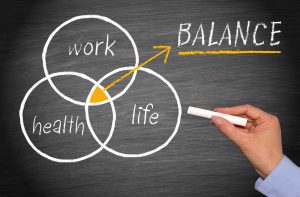Psychiatry is seen primarily as a tool to aid with mental maladies. It looks to the brain and its functioning to resolve issues mental problems. It looks to utilize therapies and medications that help balance the brain or correct issues that are brain related to the pathology itself. Holistic or Functional Psychiatry looks not just at the mind but looks at a variety of other social, physical, and diet related issues that may also overlap and play issues in mental pathology

Holistic and Integrative Healthcare Professionals look at a broader spectrum of the human person and how it relates to specific issues. In addition to mental therapies or only medication, Functional or Holistic Psychiatrists will employ meditation, changed diets, different social interactions and even adjustment to sleeping issues that may also reflect upon the primary problem. This more broad range approach encompasses the idea of holistic medicine as being something that just does not analyzes one aspect of human health but numerous aspects that target just not one specific area but multiple fronts. In this way, it can be less intrusive with side effects and also not merely mask the symptoms but find a long term cure that prevents future issues.
The article, “What Is Holistic Psychiatry?” by Susan Trachman emphasizes many of these points regarding Holistic Psychiatry and its many uses in helping individuals with mental maladies. She endorses a more broad range approach that includes meditation, diet, exercise and better sleep patterns. She believes that this more broad approach can produce better results for mental issues such as depression. She states,
“Functional or holistic psychiatry is an emerging approach to mental healthcare that emphasizes the underlying biological, psychological, and social factors contributing to mental health issues. It considers the unique genetic, environmental, and lifestyle factors influencing each individual’s mental health. Functional psychiatry is an approach to mental illness that considers the whole individual when treating psychiatric conditions like depression or anxiety.”
“What Is Holistic Psychiatry?”. Susan Trachman. April 22nd, 2023. Psychology Today.
To read the entire article, please click here
Commentary
Depression for many is an issue that has no direct correlation with loss itself. While depression can grow from pro-longed grief and unresolved grief issues directly related to loss, many suffer from depression based solely on genetics or issues within the brain and its production of various chemicals. Imbalances can cause a sense of lost and lack of meaning in life. It can lead to all the symptoms associated with loss but without the specific reason. Hence a person suffering from depression usually requires counseling and medication to rectify the imbalance. For many this is a life long journey with reoccurring bouts of depression.

The same holds true for anxiety. Unlike stress which has a direct correlation with a stressor, anxiety is an extreme nervousness and uneasiness when nothing is wrong in one’s life. One can feel extremely paranoid, nervous, and uneasy to the point one is crippled from even leaving one’s own bed. This mental ailment also requires professional guidance and the imbalance created in the mind is usually treated with a variety of medications, including Xanax.
Many individuals unfortunately cope improperly when dealing with depression or anxiety. They can turn to drugs and alcohol or turn to other unhealthy life choices when looking to escape the depression or anxiety. This is why if dealing with anxiety and depression it is important to face it with the aid of a licensed counselor, or a healthcare professional with the appropriate training and legal abilities to help one learn better coping strategies and also provide, if necessary, the required medication.
Holistic and Integrative Mental Care
When dealing with these intense issues, one should finding a professional who is also well versed in holistic and integrative health care. Some licensed mental care providers are also trained and certified in Holistic and Integrative healthcare. Functional Psychiatry is an excellent source to help individuals receive the care they need when facing depression, anxiety or other health maladies. As stated above, these healthcare providers can supply an individual with a more broad based plan that goes beyond just analyzing one’s mental state and brain but also look at other social and behavioral aspects in one’s life. While medication is still pivotal, Holistic and Integrative Healthcare Professionals can also guide individuals with proper exercise, sleeping patterns, meditation and even diet. Sometimes, issues within the mind are interconnected with one’s own social and behavioral patterns and diet, meditation, lack of sleep and exercise can be big issues in finding peace and calm from depression, anxiety and other mental maladies.

Those who utilize this type of broader review of mental malady have an interest in a more whole view of health instead of merely analyzing one’s mind and the symptoms. Instead, providers of this nature look to treat the entirety of the person and look to find any interconnections within the totality of the person. Instead of masking symptoms with medication, one looks to find the source of the issue and attempt to fix it with better life style and healthier diet.
Numerous healthcare professionals approve of a holistic approach, one just merely has to research and find those who adhere to those principles. Registered Nurses, Nurse Practitioners with Psychiatric training, Physicians, Social Workers and Licensed Counselors, as well as Psychologists and Psychiatrists can all play key roles in applying holistic principles. Many of these healthcare professionals also have additional training in Functional Psychiatry or Holistic and Integrative Health and can apply it to treatment.
Conclusion
Treating the entirety of the human person is a core principle in holistic health. It looks not just at the symptoms but looks to discover the source through a multifaceted investigation of the totality of the human person. Functional Psychiatry looks at the entirety of the human person beyond merely the mental aspect, but also ones physical, emotional and behavioral self. In this way it looks at exercise, meditation, sleep and diet as additional areas of concern when dealing with depression, anxiety or other mental ailments.
AIHCP offers for professionals who are seeking an additional certification in holistic health, a Holistic Nursing or Holistic and Integrative Healthcare Certification. The program is online and independent study and open to qualified professionals seeking a four year certification in Holistic Nursing. Please review the program and see if it meets your academic and professional goals.
Additional Resources
“What Is Holistic Psychiatry? (And Why You Should Consider It!)”. A Radiantly Healthy Life. Access here
“Holistic Therapy: Treating Body, Mind, and Spirit for Whole Person Healing”. Ann Mayer. February 9th, 2022. Healthline. Access here
“Is Holistic Therapy Right for You?”. Kendra Cherry. April 13th, 2023. VeryWellMind. Access here
“A Holistic Approach to Treating Depression”. Ellen Greenlaw. July 6th, 2010. Access here
“Holistic Approach to Anxiety and Depression Treatment”.
